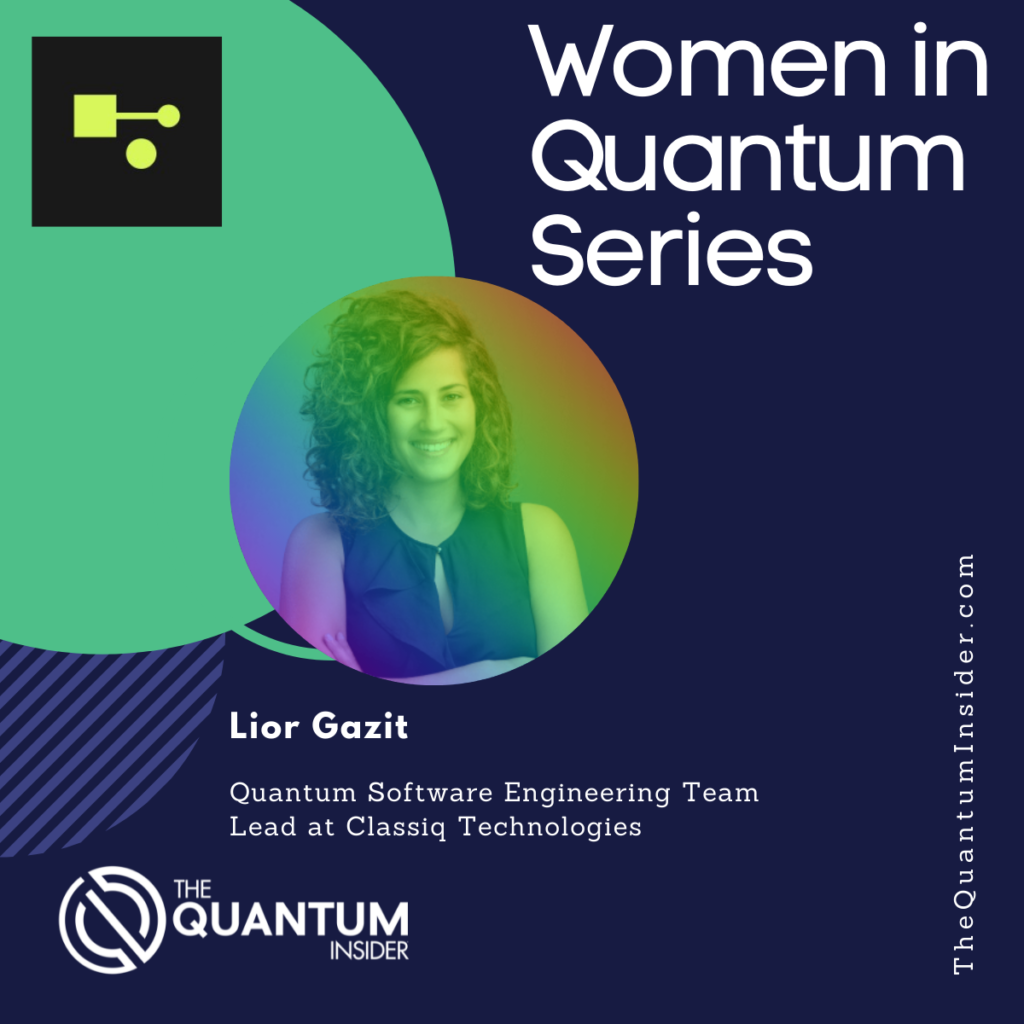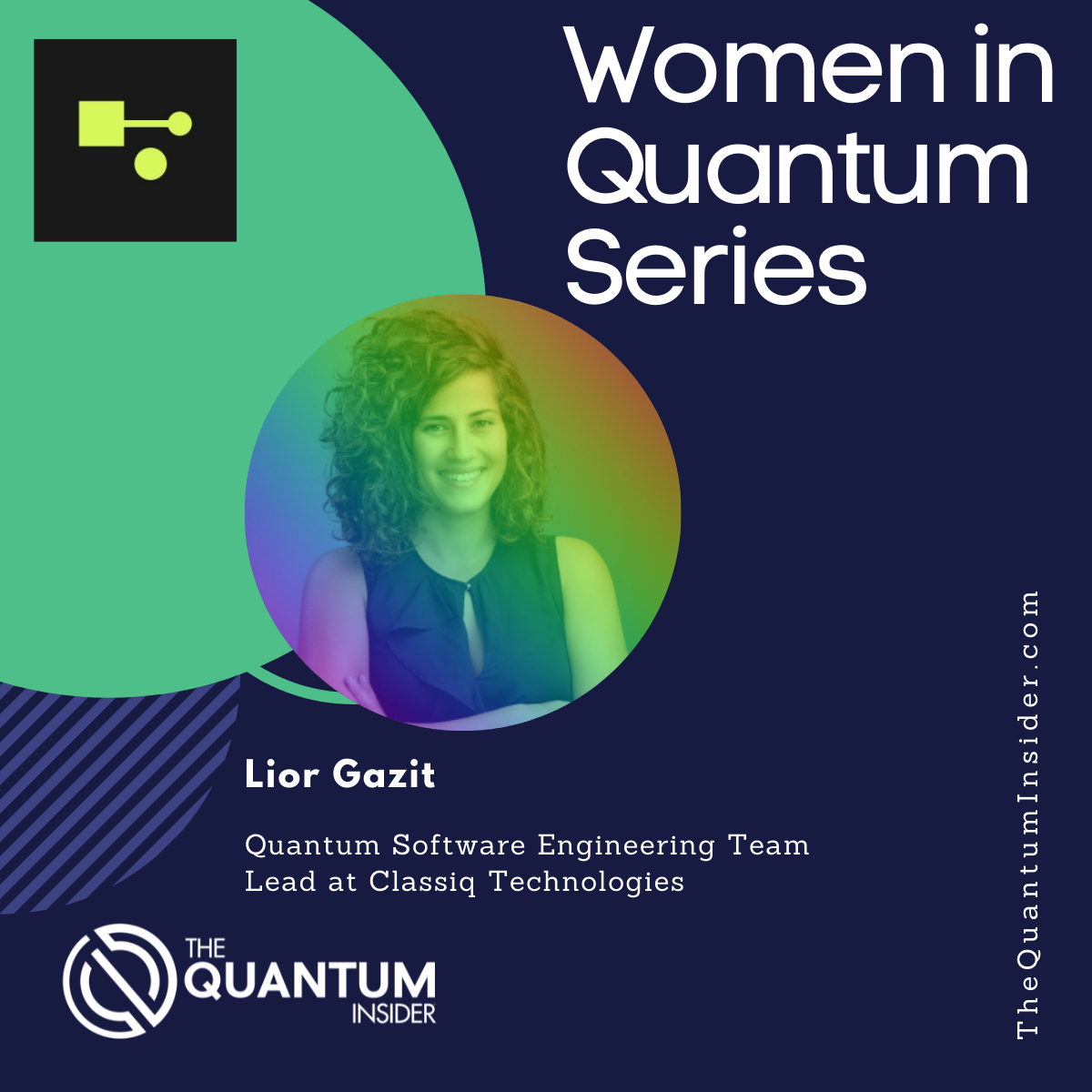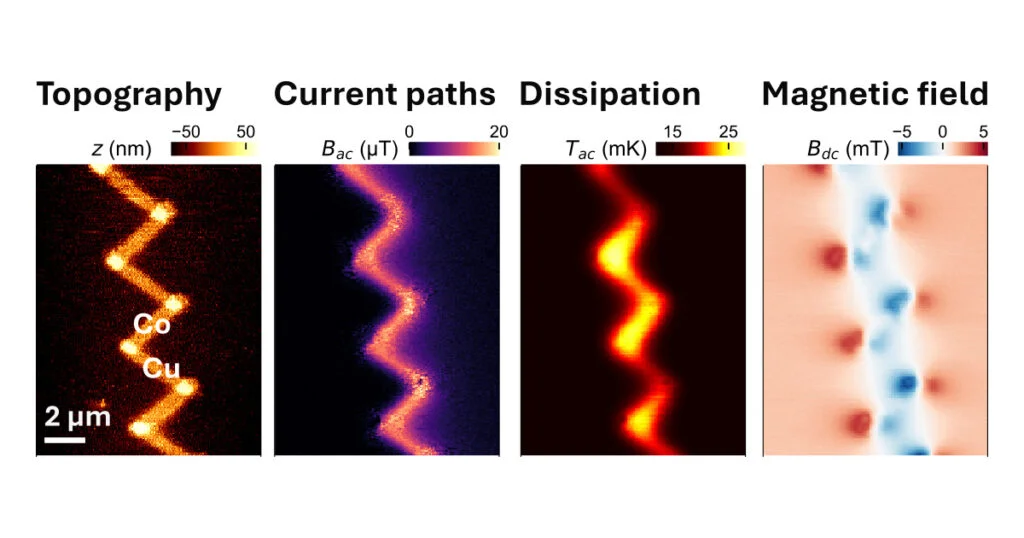
Like many individuals who enter the quantum workforce, Lior Gazit began her career in quantum technology while in graduate school. “Before starting my thesis, my knowledge of quantum computing and quantum information was limited,” Gazit said. “When I started my master’s studies, I conducted my research under the supervision of Professor Roee Ozeri at the Weizmann Institute of Science. This decision opened the door to this magnificent world.” In narrowing down her interest in quantum technology to one specific focus, Gazit chose quantum computing. “Working on a trapped ions system as a quantum computer platform made us understand how quantum computers can happen. After finishing my thesis, I felt that I had so much more to learn, and the opportunity at Classiq to develop software for quantum computers was just the right one for me.” She made the transition from academia to industry approximately two years ago.
Currently, Gazit leads the quantum software engineering team at Classiq Technologies. The company offers a software platform that analyzes and optimizes quantum circuits, allowing for maximum efficiency. “We are developing a platform to enable the programming and design of quantum algorithms,” Gazit explained. “My team analyzes the quantum circuit generated in the Classiq engine. This analysis combines quantum and classical algorithms.” The platform is also multi-disciplinary. “We use methods borrowed from the chip design world, with some fascinating quantum properties,” she added. “This analysis can deliver insights related to hardware, scale, quantum functionality, and more.” Already Classiq Technologies is a leader within the quantum industry, as they offer a product that successfully combines both software and hardware for quantum computing.
Working in quantum computing, there are many things that fascinate Gazit about quantum technology. “It is so well studied,” she said. “Quantum mechanics is the most accurate scientific theory humans have developed. It is so bizarre, weird, not intuitive, and is just fascinating.” Similarly, Gazit is intrigued by the possibilities that quantum computing has to offer. “Questions around the capabilities of a quantum computer (what a computer can and cannot do) are still very open,” Gazit commented. “Moreover, the underlying challenge of building such a computer or embedding quantum technology is vast. The fact that it is still unclear what will be the leading technology that yields the best qubit is overwhelming. Working on this everyday magic satisfies my curiosity and urge to learn.”
As a leader within her team at Classiq Technologies, Gazit hopes to inspire others to be just as curious, while also being supportive. When asked about ways to improve the diversity of the quantum industry as a whole, Gazit responded: “I don’t think there is one correct answer. I would love to see more diversity in key positions in the industry (diversity in gender, LGBTQ, ethnicity, and more). Having diverse people in key positions will set the stage to understand that there is no glass ceiling and everything is possible if you work hard enough.” In her position within the industry, Gazit believes one of the biggest challenges to overcome is making connections. “From my point of view, I feel that a main problem is to reach women (for example),” she explained. “This can be improved using meetups, dedicated lectures, and mentoring programs. At Classiq, I feel that we have created a welcoming and diverse environment. But there is always room for improvement.” Gazit’s sentiments reflect a bigger trend happening within the industry, as many are also working hard to encourage more connections. With groups like Women in Quantum and WIQD (Women In Quantum Development), women are able to find a community within this field made of peers and mentors. This community benefits the industry as a whole, encouraging more inclusivity.

If you found this article to be informative, you can explore more current quantum news here, exclusives, interviews, and podcasts.















